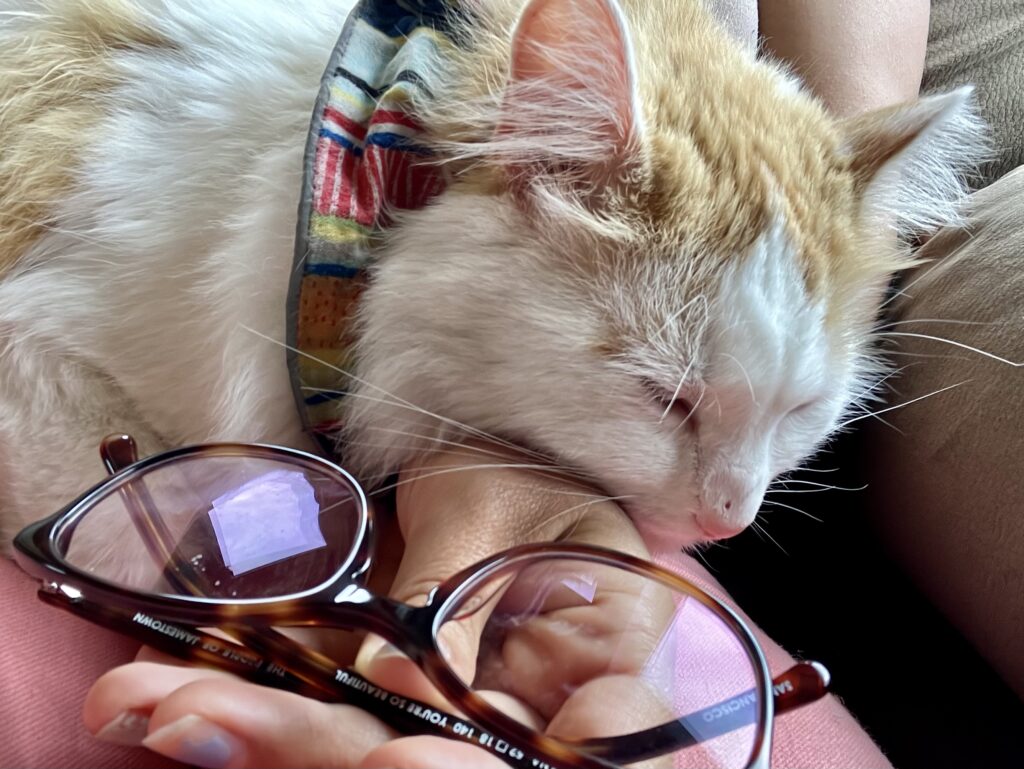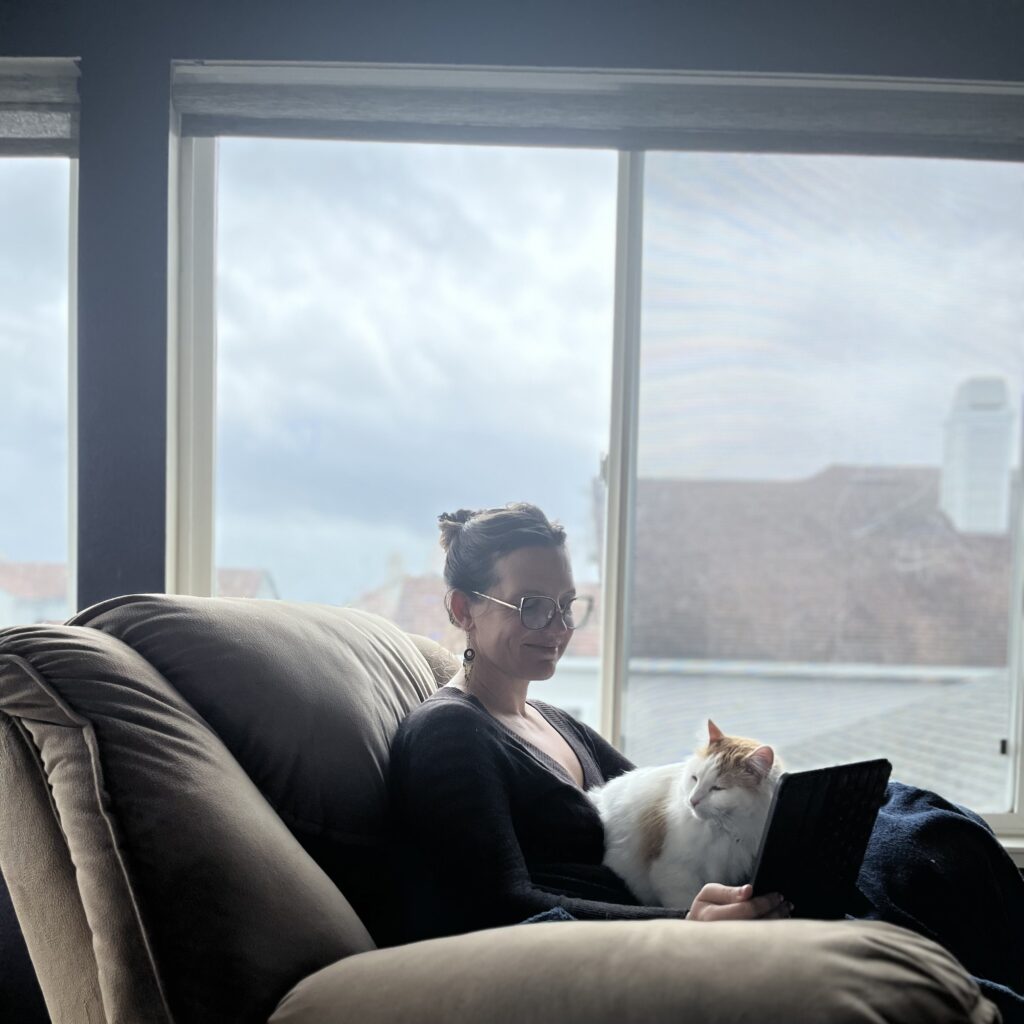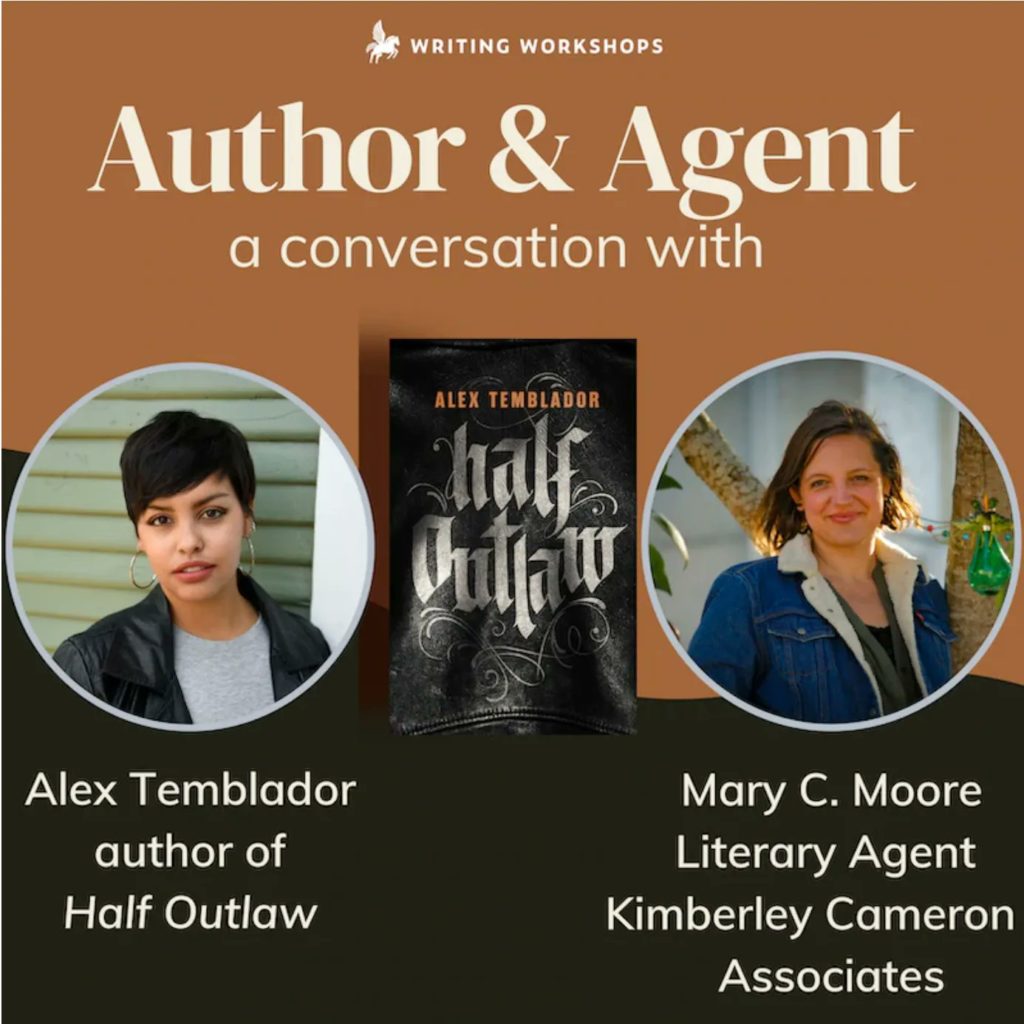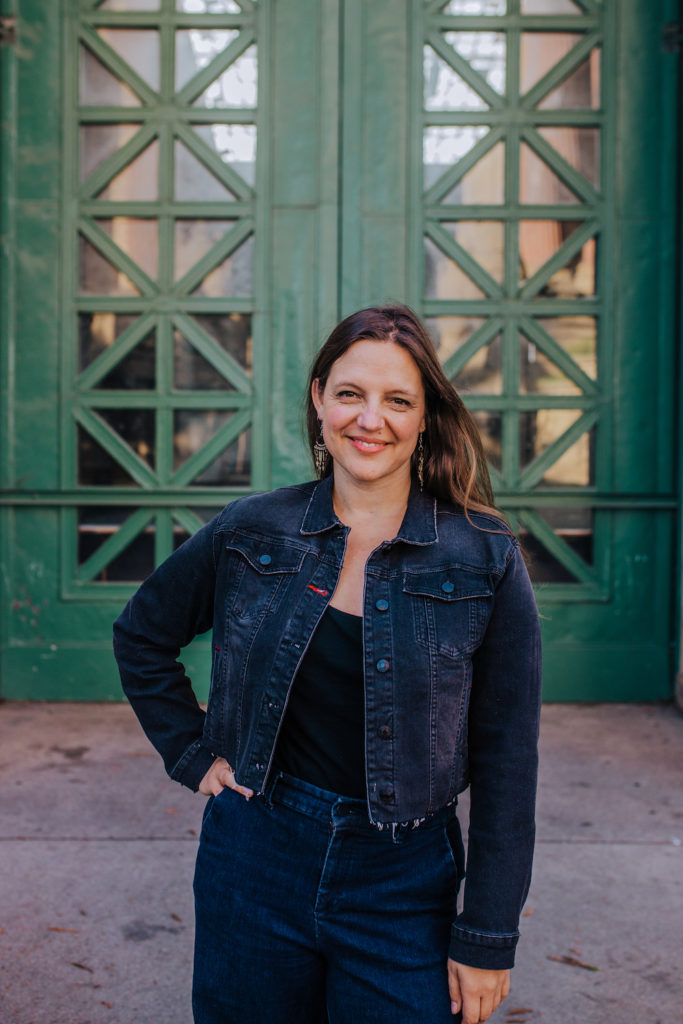An old adage you often hear in writing circles is that “writers write because they have to.” There’s this idea that true writers don’t write for any reason other than that they are called to. They were born to write. Like all the arts, there’s the romanticized idea of the starving artist, someone who does it purely for the love of it, no matter the cost.
I’ve always had an uneasy understanding of this concept, even before I became a literary agent. My internal drive to write comes and goes. I grapple with whether or not I’m a true author. Despite having written two full manuscripts, novellas, and a short story collection, I doubt myself. So when my daughter was born, and I found it too hard to keep up the habit, I let the idea that I was a writer go. I believed I just wasn’t wired that way. I wasn’t born to write.
Maybe I was born to read. After all, it was always almost effortless for me. As a child I read almost the entire children’s section at my local library. In high school I could read a book a night. Postpartum I joined a book club and didn’t take a maternity leave from agenting. I inhale books like a kid with birthday cake. So a career as a literary agent feels natural, like it was what I was meant to do. I never doubt my reading ability, reading is a comfort.
When the pandemic hit, I further explored and expanded that comfort. I found fresh joy in editing my client manuscripts. I discovered a surprising new love for nonfiction, immersed myself in musings on firebombing a woodchuck den and the origins of our discontents. Particularly I was drawn to books that dug into how the brain is wired. I made tiny changes and really began to understand how hooked I was. This attraction to learning more about neurology wasn’t surprising, as even before this anxiety-inducing pandemic, neurosis is an old foe of mine. I was diagnosed with PTSD in my early-twenties, and have struggled with anxiety-related problems since then. Add a global pandemic, well it’s not hard to imagine my state of mind in 2020, as many of you felt it too.
So when browsing the nonfiction new releases section, a specific book caught my eye. Unwinding Anxiety: New Science Shows How to Break the Cycles of Worry and Fear to Heal Your Mind by Judson Brewer, MD, PhD. With a healthy dose of skepticism and hope, I dug into it. To my delight, I found it offered wonderful tools to help rewire my brain’s knee-jerk anxiety and rethink how I approach stressful situations. I suspect it is a great audio book, and have been recommending it to friends with anxiety from all corners of my life. It’s not a cure-all, but I found it helpful.
But what does this have to do with writing?
A lot actually.
I was struck by a particular line: You need to find a reward that is more rewarding and doesn’t feed the habit loop through mere substitution of a different behavior (165). What a great line. To put in context, your brain is reward-based and its default is to operate on habit loops. Negative loops can’t be broken by simply changing the reward. To break negative loops, one must step back and examine where the anxiety is coming from.
I wondered if those authors that were “born to write” in reality had found a positive internal reward process for their writing habit. (I was validated soon after in chapter 22 where Dr. Brewer explains his own writing process.) And those who gave up writing, maybe found they couldn’t break out of the negative anxiety cycle that comes with writing, submitting, and publishing.
As a literary agent, I can support this in practical terms. We all know the intensity of writers who want to be published. You’ve heard the urban legends of manuscripts slipped under bathroom stalls, mailed with expensive bottles of booze, etc. I’ve been pitched on the beach, in an airplane, even at a lab while getting my blood drawn. It’s pretty wild. Looking through the lens of Dr. Brewer’s thesis, it becomes more understandable. Obviously being published represents a big reward, validation of the writing process. And maybe that’s what is needed for a person to continue writing. It’s not that writers are aggressively desperate to get published for fame and fortune, but rather their writing habit is at risk. Because, for whatever reason, financial, mental, energy, timing they need outside validation that their writing is worth it. If the author feels good about writing, the author writes more, the author becomes a better writer. But if the author feels bad about writing, well what then? Hence this belief that getting published will solve that anxiety.
In theory, along with publication comes financial support, accolades, film interest, an audience etc. All factors that should feed the writing validation loop. But what writers can be faced with, once they are published, is the results do not meet their expectations, does not validate them in the way they believed it would. For many reasons. The book could not sell well (or at all), the reviews could be bad, social media could dogpile it, etc. Maybe the editor or the agent wasn’t a good fit. Maybe the author finds being on deadline to be draining and so on. This feels especially poignant currently, with pandemic burnout and increased levels of anxiety seeping into all aspects of our lives. Now the author is fighting bigger and meaner obstacles to feel good about writing. They may be dragged down by a negative feedback loop cycle, causing unhappiness, stress, disillusionment, or even paralyzing them from writing more. They might convince themselves they don’t have what it takes, because even when they achieved the dream, they aren’t happy. So then they think, maybe this means I wasn’t born to write. I’m not a writer after all.
Which of course is not true, it’s their anxiety controlling their thoughts (side-eyes my own writing insecurity). My favorite advice for writers is to breathe, look forward, and focus on the next project. Because, just like being on submission, publication leaves a void in your writing process. Your project is out of your hands, out of your control, giving anxiety an opportunity to step in. Dr. Brewer calls this feeling, a hungry ghost. Like big empty stomachs, voids don’t feel good; your brain, when faced with one thinks, Do something! Fill this! This is terrible! I’m getting sucked into this awful pit of despair. But you can’t fill a void–by trying to fill it, you just perpetuate the habit loop (171). His answer to a negative feedback loop is a combination of mindfulness, curiosity, and kindness. Rewire the cycle, so that the reward is not anxiety, but something positive. Perhaps joy and pleasure in the act of telling a story, sharing your thoughts, processing life itself. Maybe these ”born authors”, whether it be through privilege, passion, or perseverance, have hijacked their feedback loops so that the act of writing itself is the reward for their writing habit.
This would mean that I wasn’t born to read, but rather the rewards for reading throughout my life have been high, so my reading habit loop is dug deeply into my brain. Reading was my comfort, I could escape a lonely childhood, not fitting in, social awkwardness, toxic relationships, a traumatic event. It rewarded me with knowledge, wisdom, empathy, a career I love, insights into worlds I never dreamed about. And the joy I find in reading and editing my clients’ manuscripts have allowed me to weather the ups and downs of literary agenting, even in a pandemic. Dr. Brewer refers to this joyful approach to a habit as Loving Kindness Practice (209). It has many names and, as he acknowledges, it stems from ancient practices.
I use this practice with my clients, although I didn’t have exact terms for it. I started to see early in my career, that by championing my authors in all aspects and phases of their writing process (even if that process is not writing at all for a time), and sticking by them if they struggled, they had a validation feedback loop. Make no mistake, they are doing the work, but they have more incentive and breathing room to keep writing (often they also have writing groups that can deepen this needed support). And watching their writing blossom when working together is incredible. The longer I’ve been doing this, the more I’ve developed my client list around this idea. It takes time and patience, it’s not the right fit for some writers, and it’s not always exciting or newsworthy, but it seems to work for my clients, who hopefully feel they have stability and support in an ever-changing chaotic industry and an increasing anxiety-laden outside world.
So what about my own writing?
Back in March I was interviewed on the Middle Grade Ninja (episode airs June 26). The host Rob was wonderfully warm, and we had a lovely chat about publishing and how I work as a literary agent. Near the end he took me off guard with the question, “do you still dream about being a published author?”
I blurted out, yes. Surprised the hell out of me too. But it wasn’t my old dream of getting the big book deal and becoming a household name (not that I would turn that down). Rather, as I tried to clumsily explain, it was a quieter dream. I dream of writing a novel in which I truly enjoy the process of putting words to a story. When I think about the first time I found joy in writing, it was because I wrote about my trauma and subsequent PTSD under the thinly veiled guise of a fantasy novel. I reframed my narrative into one that gave me power and one I could love.
I thought I had lost that joy somewhere along the way, but then why do I continue to blog? Blogs are outdated, writers don’t really need yet another literary agent advice blog, and each of my posts garners no more than a few hundred views per year. I’m not even sure my family and friends read this. So I’m not exactly getting outside validation. (Thank you my handful of loyal readers, I see you.) Did some internal appreciation of simply writing the posts sneak in there? I’d been so distracted by my own negative feedback loop that I had missed the possible positive reward signals. That I am still writing. I am a writer. As Dr. Brewer states, Awareness is also required in order to affect or change behavior: you have to become aware of or wake up to being in the middle of a habitual behavior before you can do anything about it (162).
So for those of you struggling with the writing process, whatever stage you are at in your career, know you are not alone. Maybe you took a few years/decades off. Maybe you pivoted from being published with the big publishers to indie. Maybe you don’t have the privilege of time or financial support right now. Maybe the agent query process is really draining you. Maybe you are burnt out. That’s okay. That doesn’t make you less of a writer. Be kind to yourself. Respect yourself, starving artist or not. Don’t write at all costs. Meditate on what about writing gives you pleasure, and find your way back to its joy.












